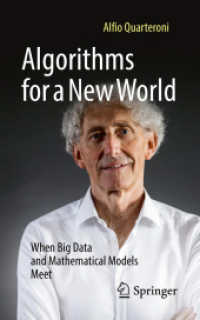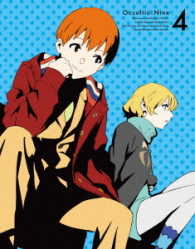- ホーム
- > 洋書
- > 英文書
- > Literary Criticism
Full Description
This book explores the deep, imaginative, and creative power of poetry as part of the human experience. How poetry provides insight into human psychology is a question at the beginning of its theoretical development, and is a constant challenge for cultural psychologists and the humanities alike.








